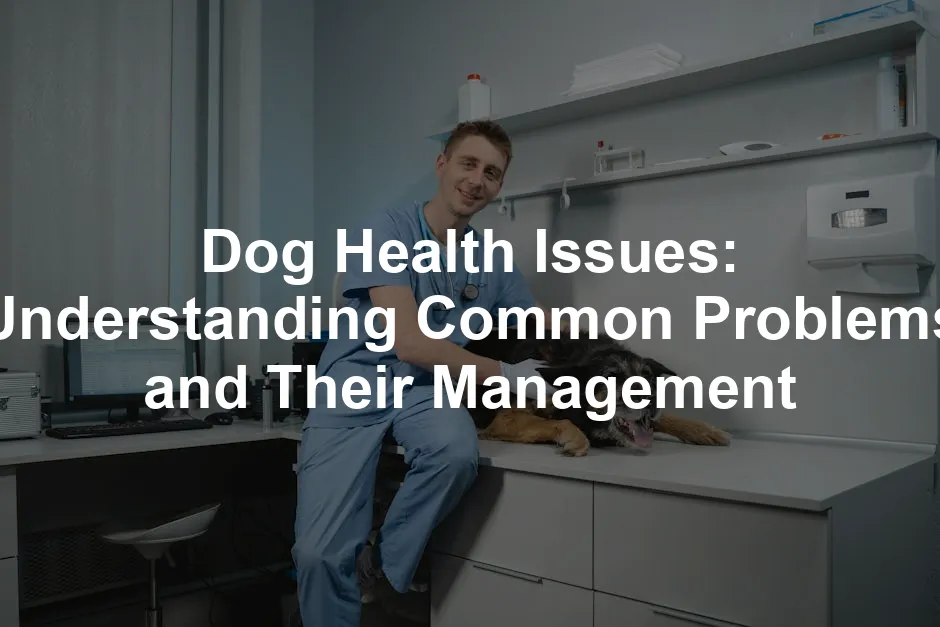Introduction
Understanding dog health issues is crucial for pet owners. Recognizing symptoms early can save your dog from serious problems. Timely veterinary care is key to keeping dogs healthy. This article will discuss common health issues dogs face and how to manage them effectively.
And while we’re at it, let’s not forget about dental health! A Dog Dental Care Kit can be a lifesaver in preventing dental disease. Trust me, your dog will thank you for the fresh breath and healthy gums!
Summary and Overview
Dogs can suffer from various health problems, some more common than others. Regular veterinary check-ups are essential for early detection. Preventive care helps maintain your dog’s overall well-being. It’s important to note that breed and age significantly impact health risks in dogs.
The goal here is to educate dog owners on recognizing and managing health issues. By staying informed, you can enhance your pet’s quality of life and ensure they stay happy and healthy. Remember, being proactive is the best way to care for your furry friend.

Speaking of being proactive, how about investing in some Flea and Tick Prevention Treatment? These little pests can cause a whole lot of trouble, and prevention is definitely better than cure!
Common Health Problems in Dogs
Skin Issues
Dogs can suffer from various skin problems. Skin allergies, infections, and hot spots are among the most common. These issues often manifest as itching, redness, and hair loss. If your furry friend is scratching more than usual, it may be time to investigate.
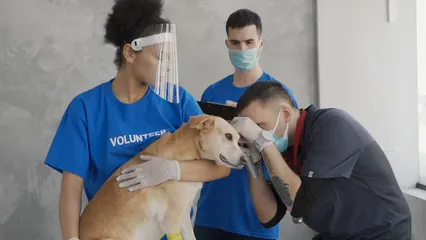
Symptoms of skin issues include excessive itching, inflamed skin, and bald patches. Allergies, whether environmental or food-related, are often culprits. Parasites like fleas and mites can also trigger skin problems.
Treatment options vary. Topical treatments and Dog Allergy Relief Shampoo can provide relief. In some cases, veterinarians may recommend allergy testing or special diets to identify triggers. Statistics show that skin issues affect a significant percentage of dogs, making awareness essential. If symptoms persist, consulting a vet is vital.
For more information on managing skin issues, refer to our guide on understanding and treating common skin issues in dogs.
Ear Infections
Ear infections pose a common health risk for dogs. They often occur due to bacteria or yeast overgrowth in the ear canal. Signs include scratching at the ears, shaking the head, and a foul odor. If you notice any of these, don’t wait too long to seek help.
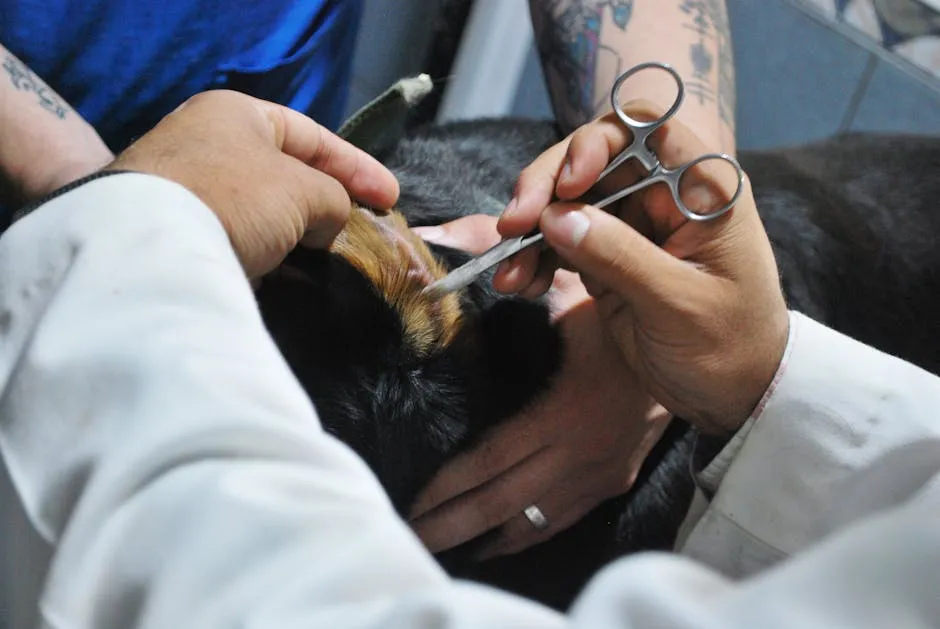
Certain breeds, like Cocker Spaniels and Dachshunds, are more prone to ear infections. Risk factors include moisture, allergies, and poor ear hygiene. Treatment typically involves cleaning the ear canal and administering medication. You can help keep those ears clean with a Dog Ear Cleaning Solution to prevent infections.
Obesity
Obesity is a serious issue impacting many dogs today. It can drastically affect a dog’s overall health. In fact, nearly 60% of dogs are classified as overweight or obese. This condition often stems from poor diet and insufficient exercise.

Several factors contribute to canine obesity. A high-calorie diet, combined with a lack of physical activity, leads to weight gain. Many pet owners may not realize how quickly treats can add up. Additionally, certain breeds are more prone to obesity, making awareness essential.
Health risks associated with obesity are severe. Overweight dogs face a higher likelihood of diabetes and joint problems. Extra weight puts pressure on their joints, leading to arthritis. Moreover, obesity can strain the heart and lungs, reducing overall vitality.
Preventing obesity is crucial for your dog’s long-term health. Focus on diet control by measuring food portions with a Dog Food Measuring Cup and choosing healthy options. Incorporating regular exercise routines into your dog’s daily life is equally important. Activities like walking, playing fetch, or even swimming can keep your furry friend active.
Dental Disease
Dental health is vital for your dog’s overall well-being. Many dog owners overlook this aspect of pet care. However, dental disease is quite common, with around 80% of dogs showing signs by age two. Neglecting dental hygiene can lead to severe health issues.
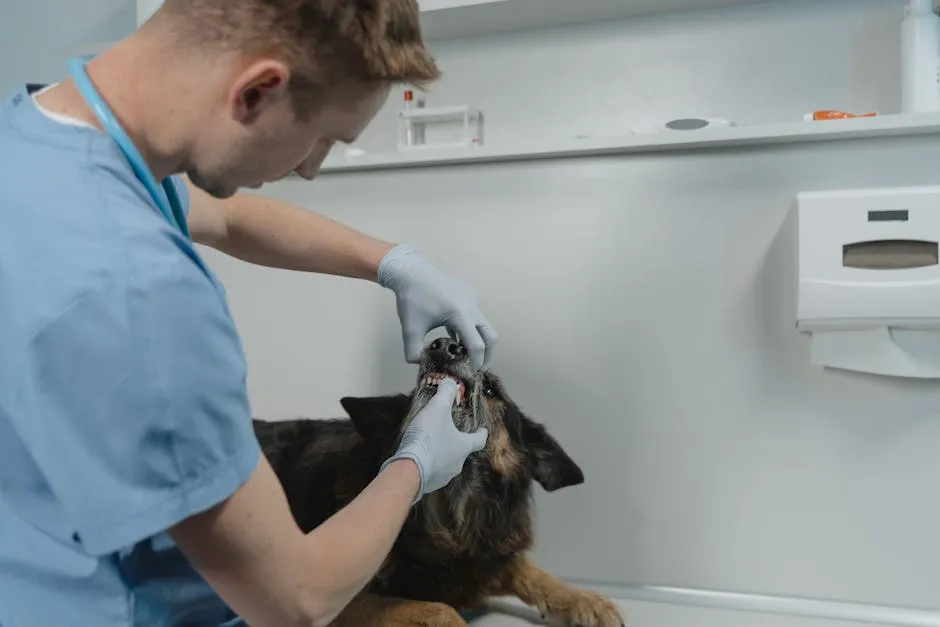
Symptoms of dental disease often include bad breath, swollen gums, and difficulty eating. If you notice your dog pawing at their mouth, it may indicate gum disease. Regular check-ups can help catch these problems early.
Prevention is key when it comes to maintaining oral health. Regular dental check-ups should be part of your dog’s routine. At-home care, like brushing your dog’s teeth, is equally essential. Consider dental treats or toys that promote oral hygiene. A Dog Probiotic Supplement can also help maintain their gut health and improve overall well-being.
Parasites
Parasites are a significant health concern for dogs. They can be internal or external, each posing unique risks. Common external parasites include fleas and ticks. These tiny pests can cause discomfort and lead to more severe health issues. Internal parasites, like heartworms and roundworms, can be life-threatening if left untreated.
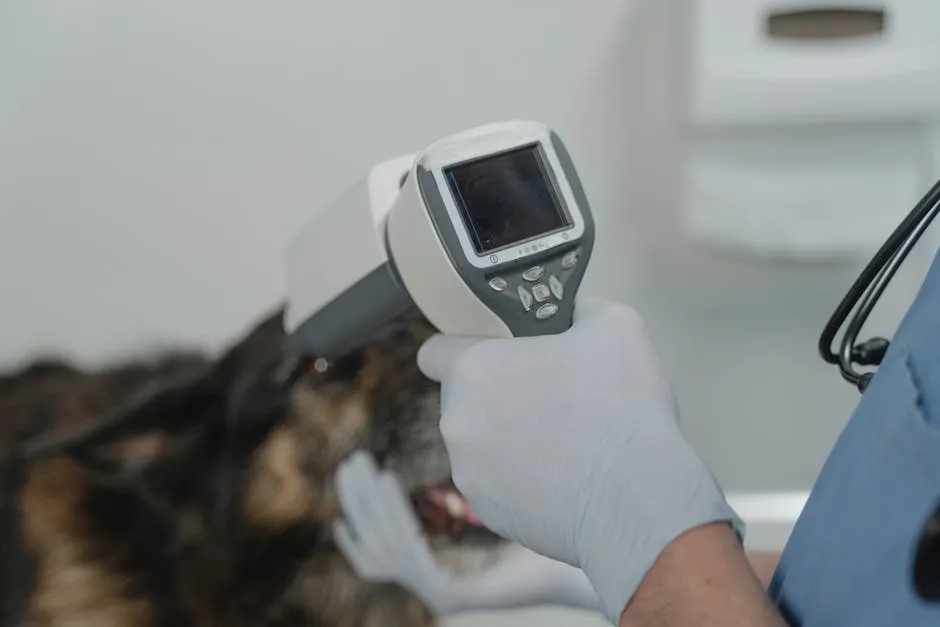
Fleas often cause intense itching and skin irritation. You may notice your dog scratching more than usual or losing patches of fur. Ticks can transmit serious diseases, such as Lyme disease. Always check your dog’s coat after walks in wooded areas, especially during warmer months.
Heartworms, transmitted through mosquito bites, can lead to severe heart disease. Symptoms often include coughing, lethargy, and weight loss. Without prompt treatment, heartworm infestations can be fatal.
To prevent infestations, regular parasite control is essential. Monthly medications like Dog Flea Comb and preventive care reduce the risk of these pesky invaders. The American Veterinary Medical Association reports that about 30% of dogs are affected by some form of parasite.
Urinary Tract Infections (UTIs)
Urinary tract infections (UTIs) are common in dogs and can cause significant discomfort. Symptoms often include frequent urination, straining to urinate, and blood in the urine. If your dog seems to need to go outside more often, it could be a sign of a UTI. Other signs include discomfort or whimpering when urinating.
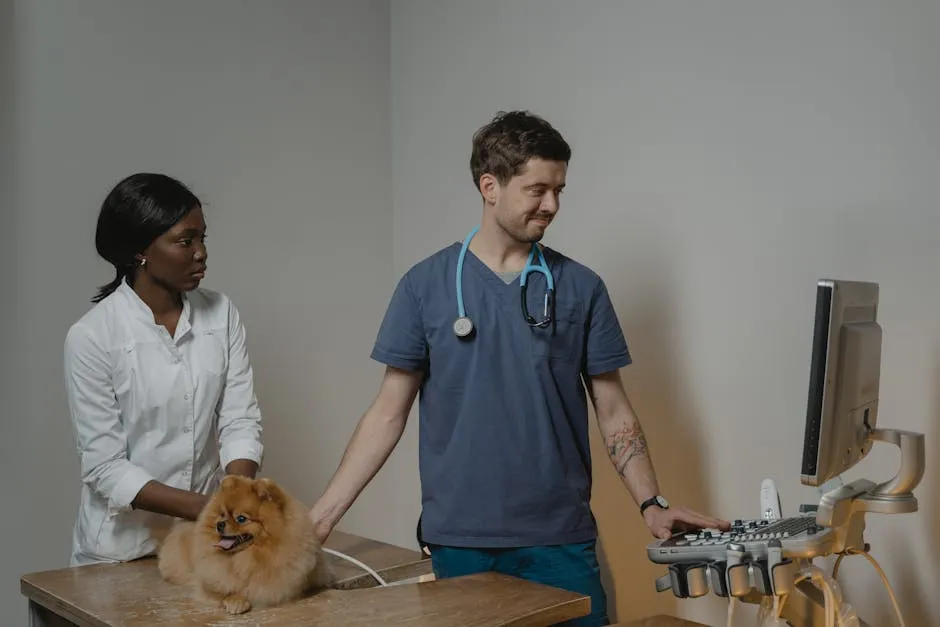
UTIs are usually caused by bacterial infections. However, underlying health issues can also contribute, such as bladder stones or diabetes. It’s essential to consult a veterinarian if you notice these symptoms.
Prompt treatment typically involves antibiotics and ensuring your dog stays hydrated. Drinking plenty of water helps flush out the bacteria causing the infection. Statistics suggest that about 14% of dogs will experience a UTI in their lifetime.
Being aware of UTI symptoms can lead to timely veterinary care. If your dog shows any signs of discomfort during urination, seek veterinary advice quickly. Early intervention can prevent complications and keep your dog feeling their best.
Arthritis
Arthritis is a common issue in aging dogs. It leads to joint pain and reduced mobility. You might notice your dog limping or showing stiffness, especially after rest. These symptoms can indicate discomfort and struggle with daily activities.
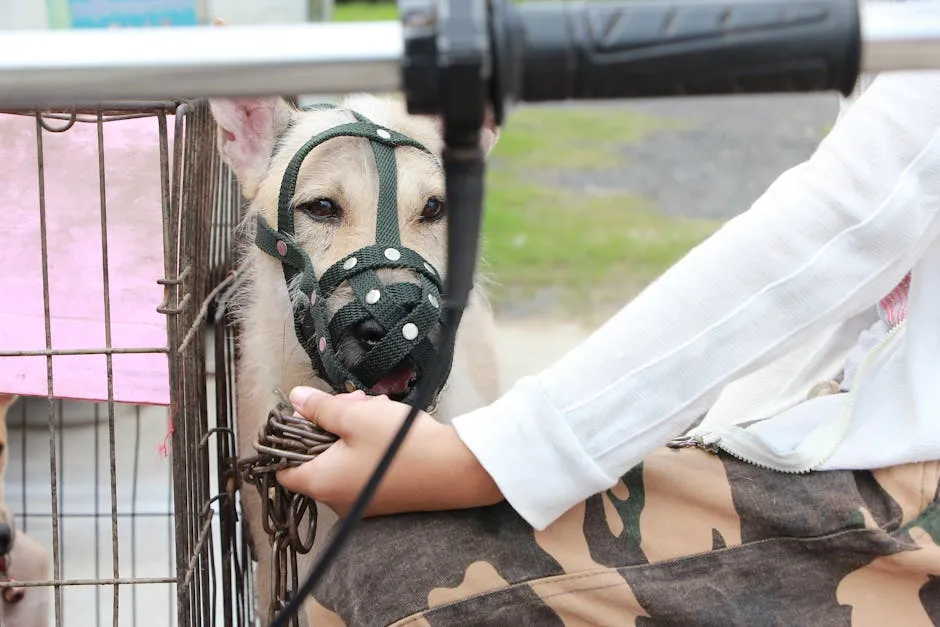
Several risk factors contribute to arthritis. Age is the primary one, as older dogs are more likely to develop this condition. Additionally, certain breeds, like Labradors and German Shepherds, are predisposed to osteoarthritis. Understanding these factors helps in early recognition and management.
Managing arthritis can be challenging but is essential. Medications can help alleviate pain and inflammation. Your veterinarian may suggest physical therapy to improve mobility. Regular low-impact exercises, like short walks, can also benefit your dog’s joint health.
Consider using Dog Joint Supplements to support your furry friend’s joint health and mobility.
To learn more about managing joint pain in dogs, check out our article on Best supplements for dogs with joint pain and arthritis.
Breed-Specific Health Issues
Many dogs face unique health issues based on their breed. Understanding these conditions can greatly benefit prospective owners. For instance, German Shepherds often develop hip dysplasia, leading to pain and mobility issues. Bulldogs, on the other hand, are prone to breathing problems due to their short snouts.

It’s vital for potential dog owners to research breed-specific health concerns. Knowing what to expect can prepare you for responsible pet ownership. Some breeds, like Dachshunds, may suffer from back problems, while Golden Retrievers are more susceptible to certain cancers.
Recommendations for breed-specific care are essential. Regular veterinary visits and preventive treatments can help mitigate these issues. Statistics indicate that purebreds are more likely to inherit health problems.
By understanding these breed-specific issues, you can ensure a healthier life for your dog. Always consult with breeders about the health history of the parents. This knowledge can help you make informed decisions when adopting. And while you’re at it, consider picking up a Dog Breed-Specific Health Book to guide you through your dog’s unique needs.
FAQs
What are the most common health issues in dogs?
Common issues include obesity, dental disease, and skin problems.
How can I prevent my dog from getting sick?
Focus on preventive care, regular vet visits, and a healthy lifestyle.
What should I do if I notice symptoms of illness in my dog?
Consult your veterinarian immediately for a professional assessment.
Are certain breeds more susceptible to health issues?
Yes, some breeds are prone to specific health conditions due to genetics.
How often should I take my dog to the vet?
Regular check-ups depend on your dog’s age and health status.
Can I prevent dental disease in my dog?
Yes, practice regular dental care and check-ups for your dog’s oral health.
What signs indicate my dog may have a UTI?
Common symptoms include frequent urination, straining, or blood in the urine.
Please let us know what you think about our content by leaving a comment down below!
Thank you for reading till here 🙂 And don’t forget to grab a Pet First Aid Kit for those unexpected moments. Your furry friend deserves the best care, even in emergencies!
All images from Pexels

